| "There were moments, frankly, where I told myself, oh my God, why did I get myself into this?" - Former Operation Warp Speed adviser Moncef Slaoui on stigma working in the Trump administration
Welcome to "Face the Nation"'s Five at Five newsletter. Scroll down for your five takeaways from today's broadcast of "Face the Nation" with Margaret Brennan on CBS. Did someone forward you this? Sign-up at cbsnews.com/email. 1. Slaoui shares concerns over vaccine hesitancy among GOP 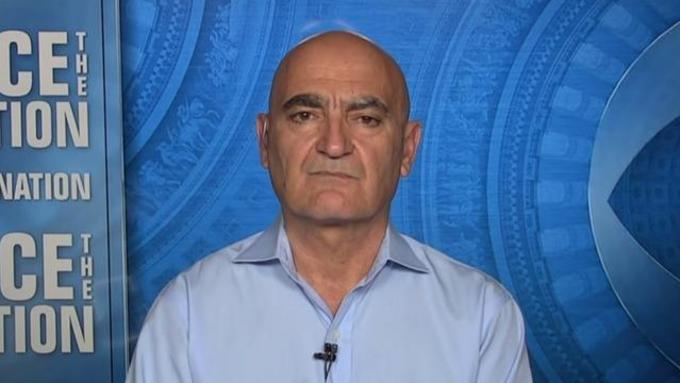 Moncef Slaoui, the former scientific head of Operation Warp Speed during the Trump administration, said he's "very concerned" and perplexed by hesitancy among some Republicans to take COVID-19 vaccines, and encouraged former President Donald Trump and GOP leaders to engage GOP voters to convince them of the vaccines' efficacy and safety. What we asked: "We're also seeing that Republicans, particularly those under the age of 65, are showing hesitation to taking a shot in the arm. What do you attribute that to?" What Slaoui said: "I think it's really concerning that there are hesitations in the population and we need to work very hard regardless of the political positioning of people, that people understand that vaccines are very important and are going to help us really manage and control this pandemic. I'm very concerned, very concerned that for political motivation, people decide to actually place themselves and the people around them in harm's way by refusing to be vaccinated." Why it matters: CBS News polling shows Republicans are the most likely group to say they don't want the vaccine, which could pose a challenge to reaching herd immunity in the U.S. A recent CBS News poll found 34% of Republicans say they will not be vaccinated against the coronavirus, compared with 30% for independents and only 10% of Democrats. 2. Duckworth wants DOJ, FBI to dig into Asian-American hate crimes 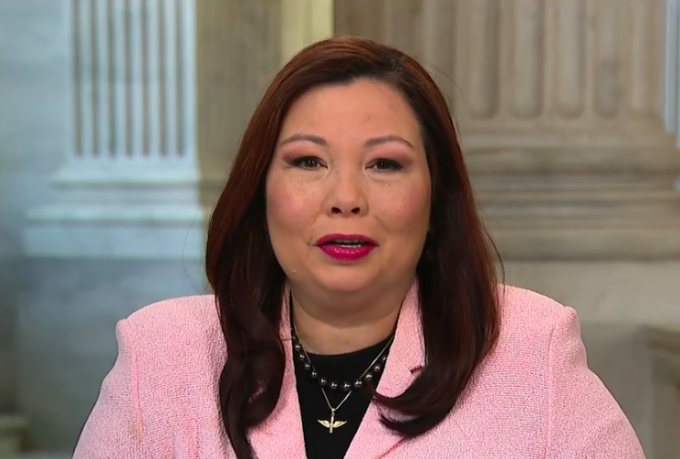 Senator Tammy Duckworth on Sunday called for a "deeper investigation" into the motive behind the shootings at Atlanta-area spas last week that left eight people dead, including six Asian women, as well as other crimes against Asian Americans. What we asked: The FBI director, Chris Wray, says that local investigators, they've got the lead, but from where he sits so far, it doesn't look like these shootings were racially motivated. From where you sit, is he wrong? What Duckworth said: "From where I sit, I want to see a deeper investigation into whether or not these shootings and other similar crimes are racially motivated. It looks racially motivated to me. But I'm not, you know, I'm not a police officer, I'm not investigating the crimes. What I have done, though, is I have actually sent a letter to Director Wray and to Attorney General Garland asking for a deeper investigation into crimes that involve Asian-Americans to see how many crimes have actually been underreported as hate crimes." We pressed LA Mayor Eric Garcetti on the rise in crimes as well. But Garcetti says policing alone won't solve the problem: "We know that things like hate crime need both a police response and education, reporting mechanism, civilians and community based groups that can help be the eyes and ears. And we have no tolerance for this hate here in Los Angeles." Why it matters: The suspect in the Atlanta spa shootings, 21-year-old Robert Aaron Long, is in custody and has been charged with eight counts of murder on Wednesday. Police have said the suspect denied the killings were racially motivated. Instead, police said Long told investigators he had a "sexual addiction" and viewed the spas as a temptation he wanted to eliminate. 3. Gottlieb delivers warning for NYC: New variant cause for concern 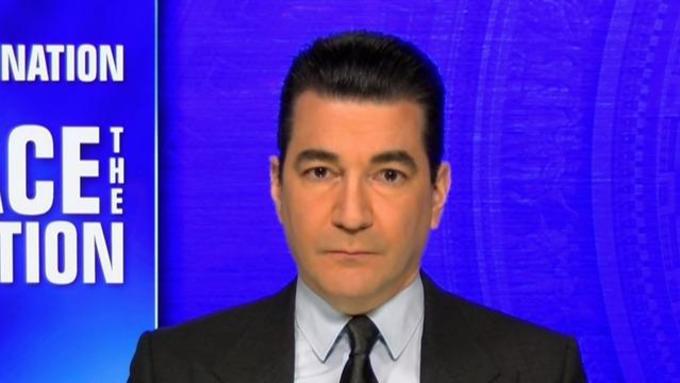 Dr. Scott Gottlieb, the former commissioner of the Food and Drug Administration, said Sunday that he continues to be concerned with variants swirling in NYC even as caseloads and hospitalizations go down. What we asked: When we spoke last Sunday you were very concerned about New York City and this new variant, B.1.526 that's been circulating. You said you would be very cautious. What do we know now? What Dr. Gottlieb said : "I'm still concerned about it. We're seeing cases and hospitalizations go down across New York, so that's a good sign.. What we don't understand with 1.526 is whether or not people are being reinfected with it and whether or not people who might have been vaccinated are now getting infected with it. One of the concerns about this particular variant is that it has that mutation that's also in the South African variant, in the B.1.351 variant, that we know in certain cases is causing people who have already had coronavirus to get reinfected with it. And so the question is- is whether 1.526 is responsible for some of the increases that we're seeing in New York right now and whether this is the- the beginning of a new outbreak inside the city." Why it matters: The impacts could be greater than we even think. Gottlieb noted that as a whole, we are "probably undercounting" the true impact of the latest strain, because "we're biasing our- our screening, our sequencing towards B.1.1.7. So we're probably missing cases of B.1.526 right now. It's probably more prevalent than what we're detecting." 4. Immigration crisis comes to a head for Biden administration 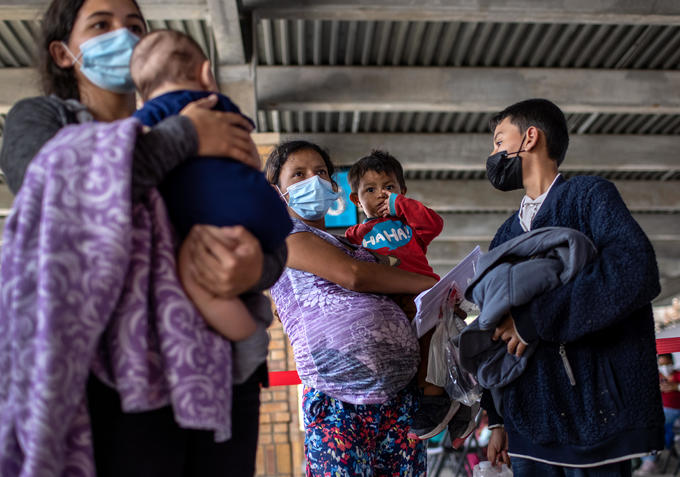 Lawmakers on "Face the Nation" once again debated the ongoing immigration crisis gripping our nation. For Democrat Tammy Duckworth, the issue stems from four years of "failed policies" under the Trump administration, despite the border presenting challenges for both Republicans and Democratic presidents alike. Meanwhile, Republican Rob Portman made the case that messaging not to cross was critical to stopping the flow of migrants at the border. Watch CBS News correspondent Mireya Villarreal's powerful reporting from the frontline of the U.S-Mexico border for her take on the personal toll the crisis has taken. 5. Take a listen: Bridgewater Associates founder Ray Dalio 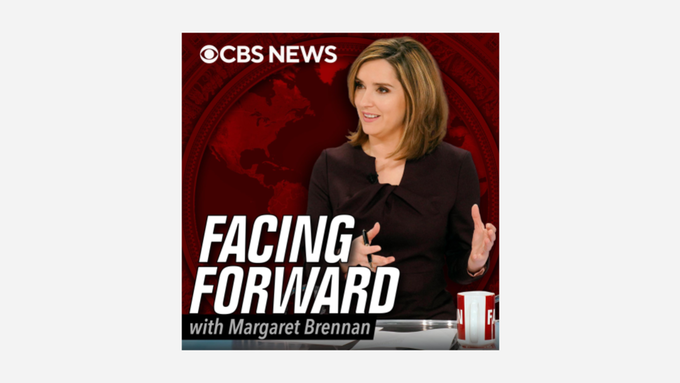 In this latest episode of Facing Forward, Margaret Brennan interviewed Bridgewater Associates founder and billionaire investor Ray Dalio who says the world order is undergoing a massive reboot. He thinks America's economy is too unequal and that surging wealth inequality could be its undoing. Their conversation here. Five at 5 Exclusive: Asian hate and the pandemic: Racism's role in COVID "Five at 5" subscribers get an exclusive look at our interview with RWJF executive Vice President and Biden COVID adviser Dr. Julie Morita 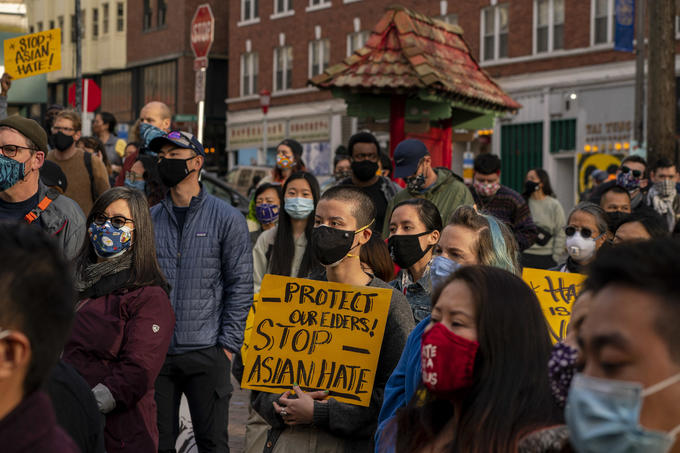
A spike in assaults on Asian Americans nationwide converging with the ongoing coronavirus pandemic has further exposed health inequities and simmering sentiments of racism over the past year. With few concrete legislative answers to the problem, health experts and patients alike are left wondering how does the U.S. address violent crimes amid a global health crisis. "Five at 5" asked Dr. Morita to weigh in: Q: You wrote nearly a year ago that hatred toward Asian Americans could have larger impacts on people's health. What role has racism played in this pandemic? There is overt racism--such as the incidents against individuals and communities--and then there is systemic racism that has created the conditions in which people of color have fewer choices, fewer opportunities and more challenging lives and circumstances. The former plays out in real time, the latter over generations. Both have played leading roles in this pandemic. We've seen from the earliest days of Covid-19 how Black and Brown communities have suffered disproportionately--both in health impacts and economically. The number of cases and the number of deaths tell one story, but the losses of jobs and income quickly became a second blow to many families, particularly those in occupations that don't provide some of the basic supports that people need, whether paid family and sick leave, or health insurance. We knew these vulnerabilities existed before the pandemic, and we saw how our frayed social safety net was giving way during it. The life expectancy numbers released a few weeks ago showed the impact quite starkly: Black Americans lost 2.7 years, Hispanics 1.9 years, and whites 0.8 years. We also know--as I wrote last April--that racist incidents can have direct impacts on health, contributing to heart disease, respiratory illness and other chronic diseases. Research has shown that even subtle slights against an individual or group can impact health. As this has been studied and as our society has, over time, paid more attention to disparities and to the many factors that influence health in communities of color, we are gaining a new understanding of the impact on health and the challenges to address. This will be a journey, though, and we will need a concerted and sustainable effort to address our embedded inequities. I wish I could say with certainty that the racial reckoning of the past year will lead this nation to take on racism and bigotry and hate directly and unequivocally. But as the daughter of parents who spent years, as children, in Japanese internment camps during World War II, I understand that progress on these issues is not just a challenge for their generation or mine, but for my children's generation as well. I am ever hopeful that we will make progress, and future generations will continue our efforts to make us a more tolerant nation. Q: The shooting in Atlanta last week was shocking, yet almost predictable, as incidents of racism toward Asian Americans have been flaring throughout the pandemic. How did that news impact you, as an Asian American woman? First, I feel a deep sadness--for the victims and their families, for all Asian Americans, and for our nation. We've been watching, for the last year really, disturbing incidents of racism across the United States. We cannot dismiss these as merely isolated cases, but rather acknowledge that this is a disturbing trend that has spread alongside this pandemic. In the past, my own inclination--and I think this is the case for many other AAPI (Asian Americans and Pacific Islanders) people--might have been to keep my head down in my work and my life and to move on. We can't do that anymore. This will not stop unless and until we finally make it a national priority to address the root problems that divide us, that marginalize people of color, and that allow racism to fester. This will not be easy, and it will not happen overnight, but merely hoping this will go away is not an option. That work must begin with opening our minds and hearts, respecting and listening to people of all backgrounds and faiths, and understanding perspectives and experiences that are different from our own. That's the very least each of us can do.
|
No comments:
Post a Comment